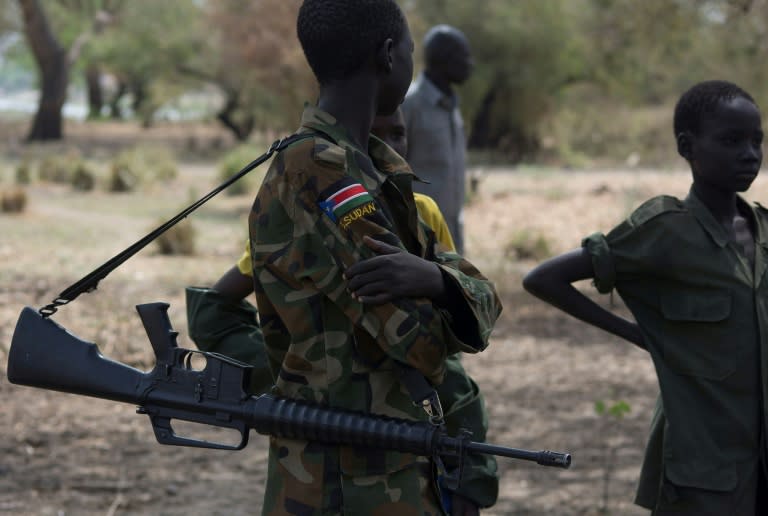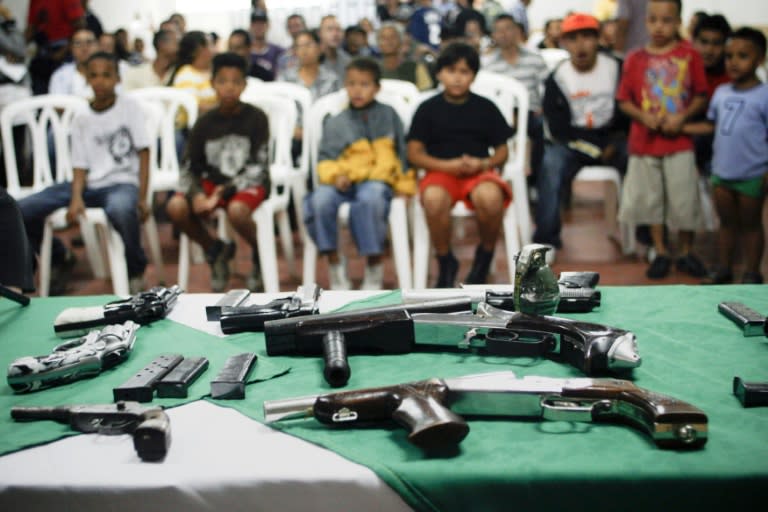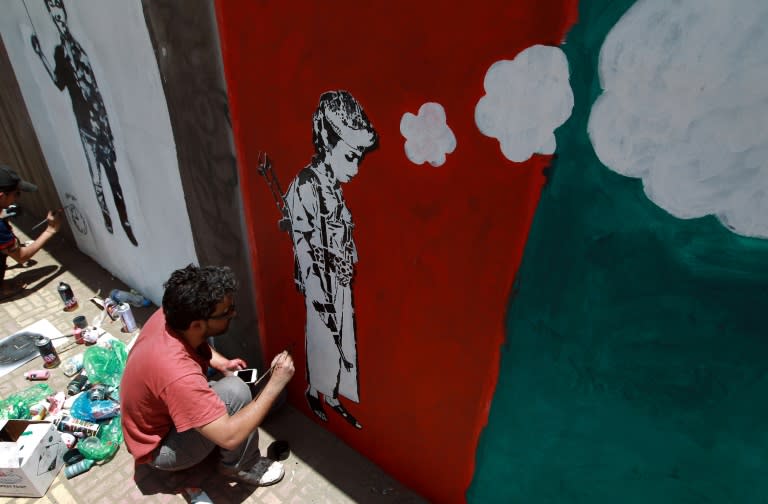Mental conflict endures for former child soldiers
Haunted by indelibly painful memories, deprived of schooling and strangers to their own families -- for former child soldiers returning to normal life is often as tough as being in combat. They face daily battles that can last years as they piece their lives together. "I had nightmares long after being freed. I had flashbacks of fighting in the bush," says Alhaji Sawaneh, a 30-year-old from Sierra Leone. Forced to fight from the age of 10 with Sierra Leone's Revolutionary United Front, Sawaneh recounted his experiences to a Paris conference that focused on the estimated 246 million children living in conflict zones worldwide. Some 17,000 child soldiers have been recruited since 2013 in South Sudan and roughly 1,500 in Yemen since 2015, according to data published this week by UNICEF, the UN Children's Fund. In Nigeria and neighbouring states, the Boko Haram Islamist group recruited an estimated 2,000 child fighters last year alone. Sawaneh says he bore arms for two years before UN peacekeepers rescued him in 2000. A child protection agency took him under its wing and has been trying to locate his family. "That is our priority -- to reconnect a child with his family is the best means of reintegrating him into society," explains Crystal Stewart, child protection advisor with an NGO, the International Rescue Committee. Yet that process can prove time-consuming. "When they are kidnapped young they don't necessarily know where they are from or how old they are. That sometimes requires painstaking research," added Stewart. In the meantime, former child fighters are fostered, but Sawaneh said his hopes of finding a loving environment were soon crushed. "My foster family made me work at home. I was like a slave," he said. "But I harboured a dream -- to continue with my studies." Eventually, he managed to secure a grant to go back to school. - 'Stigmatised' - Studying was likewise what kept Alberto Ortiz going. The young Colombian hailing from a poverty-stricken family decided at the age of 12 to join the FARC rebel movement in a bid to escape his miserable surroundings. "I thought I was going to solve all my problems and help my family financially," said Ortiz, now aged 22, who was also at the Paris conference. "They (the FARC) told me if I'd had enough then I could leave -- but I found I was caught in a trap." After three years he managed to escape and is now being aided by a government programme. But family links have been severed. "My father and my mother died during my absence. The other members of my family no longer wanted to talk to me. They were afraid of me." Ortiz, now studying finance at Santiago de Cali university, also finds society shuns him for his past. "People such as me are stigmatised. I only told my story to one friend. Nobody else knows," he added. Helping former child fighters to recover their confidence and reintegrate into their communities is a long, drawn-out process. "Former child soldiers can be rejected or killed because they have committed violence," explains Manuel Fontaine, UNICEF's emergency programmes director. The organisation is trying to convince local religious leaders, who have some influence over their followers, to welcome former fighters back into society. "But it takes time," Fontaine adds. Following the conference in Paris, Tunisia, Kazakhstan and Myanmar joined 105 other countries who have already signed up to principles and guidelines drawn up in 2007 on child fighters and their social reintegration. In the ensuing decade, more than 65,000 children have been rescued from armed forces and armed, according to UNICEF, even if thousands of boys and girls remain in their clutches.




